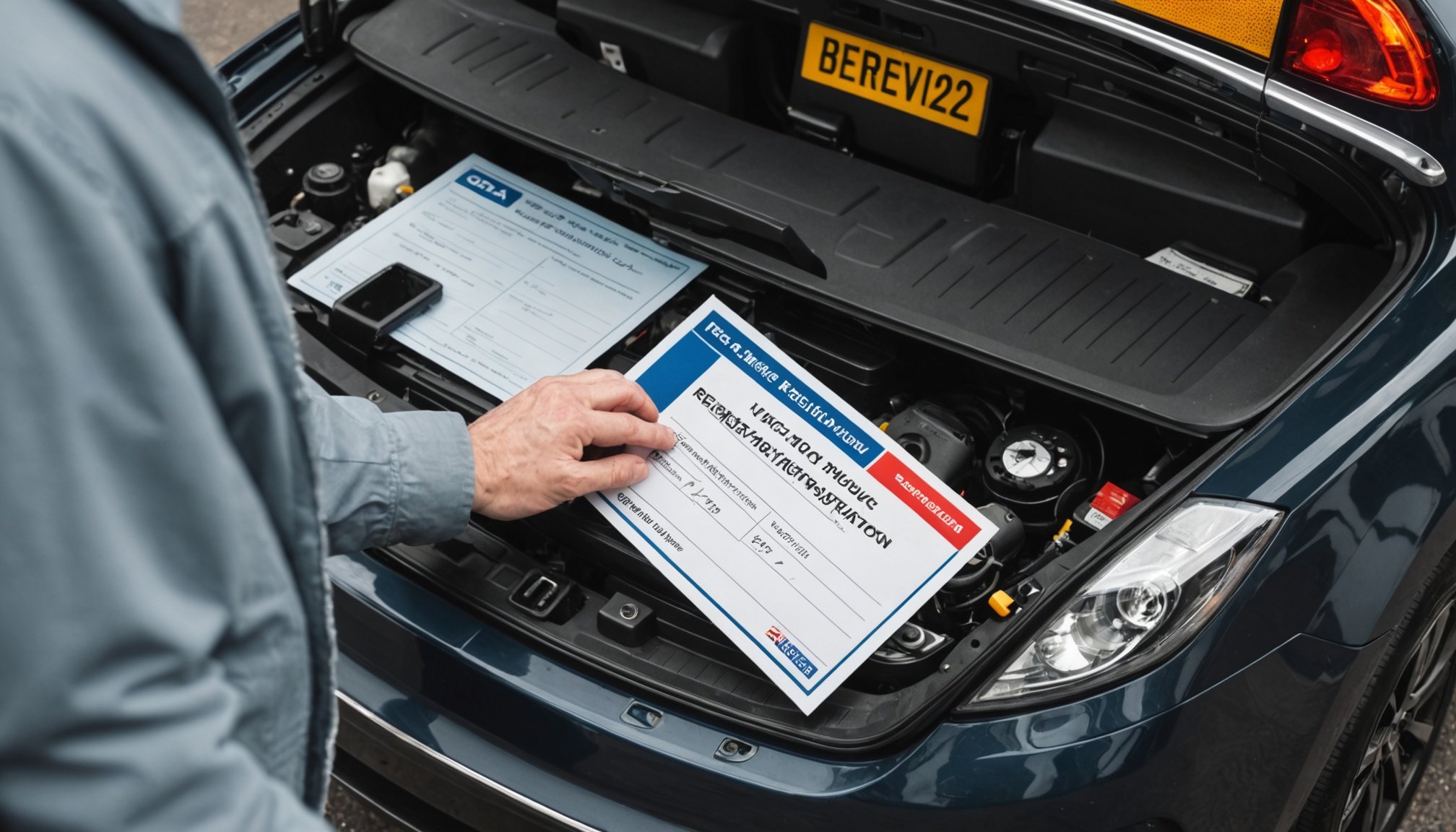Legal Consequences of Failing to Renew Vehicle Registration
Navigating the UK transport laws can be a critical mandate for vehicle owners, with stringent penalties for failing to renew vehicle registration. What are the potential legal repercussions if one disregards this obligation?
If you drive with an expired registration in the UK, you risk incurring legal penalties. Authorities may impose fines, and your vehicle could be impounded. More serious actions include being summoned to court for non-compliance, which might lead to heavier fines or even disqualification from driving.
In parallel : Mastering Fuel Efficiency: Top Driving Techniques for UK Motorways
Operating a vehicle without up-to-date registration is considered unlawful under UK transport regulations. The consequences extend beyond financial penalties. An owner’s driving history could be tarnished, affecting insurance rates or future legal challenges.
Should the case escalate to court actions, legal ramifications may be severe. It’s feasible that a driver could face more substantial penalties or legal fees, reinforcing the importance of compliance.
Have you seen this : Exploring the Pros and Cons of Car Subscription Services in the UK: Benefits, Drawbacks, and What You Need to Know!
By ensuring timely renewal of your vehicle registration, you avoid such adverse outcomes and stay on the right side of the law. Adhering to these regulations safeguards not only your legal standing but also the seamless operation of your vehicle on UK roads.
Financial Penalties for Late Registration
Dealing with registration fines can be a headache for vehicle owners. If a vehicle’s registration is overdue, substantial financial penalties may be imposed. Typically, these fines vary depending on how long the registration has been lapsed. Initially, a small fixed amount might be due, but this increases over time, becoming steeper with each passing week or month.
Frequent late registration can lead to additional costs beyond just fines. Repeated non-compliance often results in increased administrative fees or potential cost of renewal adjustments. Furthermore, the longer these fines are ignored, the more compounding financial burdens they create.
A less obvious consequence of overlooking timely registration concerns insurance. Failing to comply with registration deadlines could potentially affect insurance premiums. Insurers may view this non-compliance as riskier behaviour, leading to distrust or higher premiums. Engaging proactively and remaining compliant helps to avoid these financial pitfalls, maintaining both registration and insurance at manageable costs.
Implications for Insurance Coverage
Driving with an expired registration is not just a breach of driving laws; it can significantly affect your insurance ramifications. Insurance companies might view driving with an expired registration as neglectful, potentially impacting your coverage lapses.
Insurance status with an expired registration
If your vehicle registration is expired, your insurance status might be jeopardised. While some insurers continue coverage, others could deny claims or even cancel policies. It’s crucial to understand your specific policy terms to avoid unexpected coverage lapses.
Impact on claims and coverage
Having an expired registration during an incident could lead to denied insurance claims. Insurers might argue that driving illegally absolves them of responsibility. Consequently, costs for damages could fall squarely on the driver’s shoulders.
Obligations of the driver concerning insurance
Drivers are responsible for adhering to driving laws to ensure their insurance remains valid. This includes keeping vehicle registration up to date. Failure to comply can lead to costly financial consequences and strained relations with insurers. Regularly verifying that all documents are valid and renewing them promptly are essential steps for maintaining insurance coverage.
Steps to Renew Your Vehicle Registration
Understanding the registration renewal process for your vehicle is essential for keeping your documentation up to date. The renewal steps in the UK are straightforward but require careful attention to detail.
Start by ensuring you have the necessary vehicle registration documents. This typically includes your V5C logbook, which contains essential details about your vehicle. If you have recently changed your address or vehicle details, ensure these are updated on your logbook before proceeding.
Next, arrange for the payment of your renewal fee. This can vary depending on the type of vehicle and its emissions. Payment can be completed online via the DVLA’s website, making the process convenient. Ensure you have a valid payment method ready.
Renewal timeframes are crucial. Renew your vehicle registration before the expiration date to avoid any late penalties. Typically, reminders are sent before the expiry, offering a window to complete the process. Late renewal could lead to financial penalties or even prosecution, emphasising the importance of staying on schedule.
Following these steps ensures a smooth vehicle registration renewal and prevents unnecessary complications or fines.
Tips to Avoid Registration Renewal Issues
Keeping your vehicle registration current is crucial for maintaining compliance with legal requirements. Here are some effective strategies to help you in avoiding registration problems:
Stay Proactive with Renewal Reminders
Utilising renewal reminders effectively reduces the risk of forgetting important deadlines. Many states offer automated alert systems via email or text that notify you well in advance of your registration expiration. Opt into such services when renewing your registration to receive expiration alerts at your convenience.
Leverage Tools and Services
Consider third-party apps and services that provide alerts specific to your registration needs. Some popular apps sync with your calendar to issue reminders regularly, aiding you in avoiding registration problems by ensuring you’re always aware of upcoming deadlines.
Routine Checks Before Travel
Always verify the validity of your vehicle registration, especially before long trips. A quick check of your registration documents can save you from unexpected legal troubles. In case of any discrepancy, address it with your local motor vehicle department promptly.
By integrating these practices into your routine, you can avoid any unnecessary complications and ensure your registration remains up to date and problem-free.
Relevant Laws and Resources
Understanding UK vehicle registration laws is essential for any vehicle owner. At the core, these laws mandate that every vehicle on the road must be registered with the Driver and Vehicle Licensing Agency (DVLA). This ensures road safety and regulatory compliance. Key elements include:
- Registration Timeline: New vehicles must be registered before they are driven, while registration for existing vehicles must be renewed annually.
- Changes in Vehicle Details: Any modification or ownership transfer must be promptly reported to the DVLA.
For comprehensive guidance, you can access official guidelines available through government portals. These platforms offer resources on registering your vehicle, necessary documentation, and any associated fees. Furthermore, they provide insights into the transportation resources available, ensuring your registration process is seamless.
These resources also detail timelines for the renewal of vehicle registration. Prompt renewal within six months prior to expiration is usually advised to avoid penalties. Understanding these laws and utilising available resources empowers vehicle owners to stay compliant and informed about their responsibilities.










